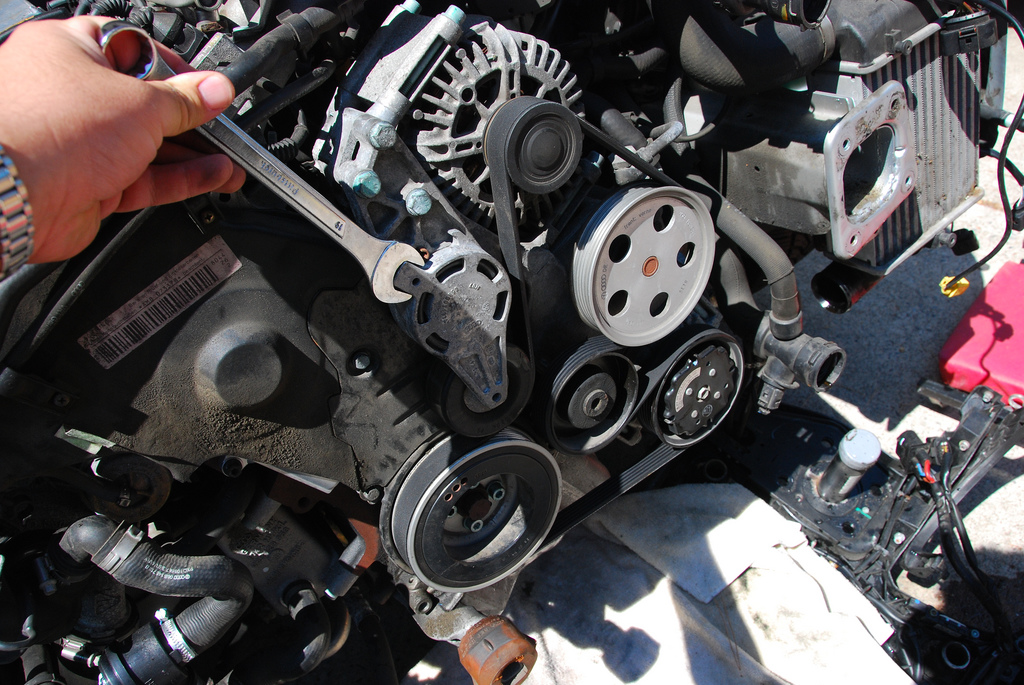With all this recent ‘talk’ from the guys about buying used cars and cars for less than the price of a Myvi, and even cars that cost less than some ‘cub’ bikes, how about we delve into just keeping what ya got? Owning a car doesn’t necessarily have to be a short-term relationship, you can still save a lot of money by keeping your current ride, rather than replacing it every 4-5 years, or earlier, if you know how to care of it. Take Irv Gordon for example (picture above), he holds the world record for having driven his 1966 Volvo P1800 for nearly 5 million kilometres. So here’s some simple tips that you can apply to keep the longevity of your vehicle.
1. Choose wisely
Almost any car will last for decades if you take good care of it, but some cars are more prone to trouble than others. Japanese cars like the Nissan Sentra, Toyota Corolla and Honda Civic are known for their fuss-free reliability and these types of cars can actually last for many years with proper maintenance, and are usually the most affordable to repair compared to European models in the same league. So if you are in the market for a new car that you plan to keep for a very long time, make sure you choose the type of brand that has a good reputation for reliability.
2. Never skip for a regular service maintenance
This might sound like a no-brainer but there are actually a lot of car owners out there who don’t have the time to spare to send their cars for regular service maintenance. Your car needs scheduled engine oil, oil filter, and air filter changes, not to mention the replacement of wear-and-tear parts, in order to run smoothly on the road, and apart from that, regular service gives mechanics an opportunity to spot and identify potential problems, like leaks, before it turns into something more serious. So don’t forget to schedule a regular service maintenance once it reaches a certain mileage if you want to keep your car for years to come.
3. Find a trustworthy mechanic
Women, especially, are at risk for being ripped-off by mechanics, so as your car nears the end of its warranty, and if you plan to use an outside workshop, start looking for a reliable and trustworthy mechanic from your friends or family because they might be able to recommend you a contact that you’ll find useful in case your car needs a repair in the future.
4. Set aside repairing funds for your car
It’s a known fact that cars do break down sometimes, and it can cost a lot depending on the type of repair that is required; but in most cases, fixing your current car is much cheaper than replacing it with a new one. So set aside a few hundred per month into your car repair fund, just in case, so you’ll have enough money to cover the repairing cost if something crops up.
5. Keep calm and drive gently
I’m not telling you to drive as slow as you could on the road, that’ll make you a road hog, and after all, an occasional heavy-foot is actually good for your engine to run smoothly. However, avoid braking too hard or accelerating too hard all the time. The same driving behaviour applies to shifting gears too.
Make sure the car is completely stopped before shifting into reverse, and conversely be sure you’re stopped before going into a forward gear. That will avoid stress on the transmission components. Most importantly, try not to get into an accident, because besides the potential for injury, extensive accident damage can make it difficult to repair the car to a brand new condition. Once a car is involved a major accident, more often than not it will never drive as well as it did before.
6. If you notice something is not right, fix it right away
When you hear a clicking noise while driving, there’s probably a nail stuck in a tyre. If it is time for new brakes, you might hear a loud squealing sound when braking, or the brake wear indicators will light up on your instrument cluster. Similarly, if you hear a scraping or grinding noise while applying the brakes, it could mean that the brake pads are so low that metal to metal contact is already happening.
Little things like this can add up into something much bigger if you don’t fix it right away, for example, using worn out brake-pads too long will damage the disc-rotors, and those cost a lot more than brake-pads. Delay getting it fixed, though, and you’ll eventually end-up by the side of the road, unable to drive the car. You’ll end-up forking out more additional money for a tow-truck. Don’t let these minor issues and inconveniences add-up and fix everything before they break. Prevention is always better than cure.
7. Know when to let go
Most cars can and will run for decades, but there are certain circumstances when it’s time to it let go. If your car has been involved in a severe accident that affected the chassis, it might be difficult to repair the a car to original condition and you may face ongoing issues with tyre wear, steering alignment, or even future crash-worthiness. Discuss with your mechanic about your car’s long-term prospects. If it’s not worth keeping, maybe it’s time to let go, in which case read this.
CW’s Parting Advice…
Having owned several used cars over the last 10-years or so, regardless of make and model, and whether they’re from Europe or Asia, one thing has always rung true: Preventive Maintenance is the key to a car’s longevity. If you ‘feel’ something is not right with your car, get it checked out. Also, warning lights are there for a reason, if one begins to flash intermittently, or worse, stays on all the time, get it checked out as soon as possible, don’t wait, make the time. The longer you wait, the more expensive it’s going to be, seriously. Cars are mechanical, there’s nothing supernatural about them, and as cliché as it sounds, take care of them and they’ll take care of you, for many years to come. As a general rule of thumb, I halve the manufacturer recommended interval time for all lube changes. Remember, fluids are the ‘lifeblood’ of your car, so transfuse regularly, or at the very least per the manufacturer recommended interval time. – Chris Wee.
[Source and Images: 1, 2, 3, 4, 5, 6, 7, 8, 9, 10]
Other posts by AF Newsdesk



![Honda-Civic-Black-Edition-1[2]](https://www.autofreaks.com/wp-content/uploads/2014/07/Honda-Civic-Black-Edition-121-1024x682.jpg)











